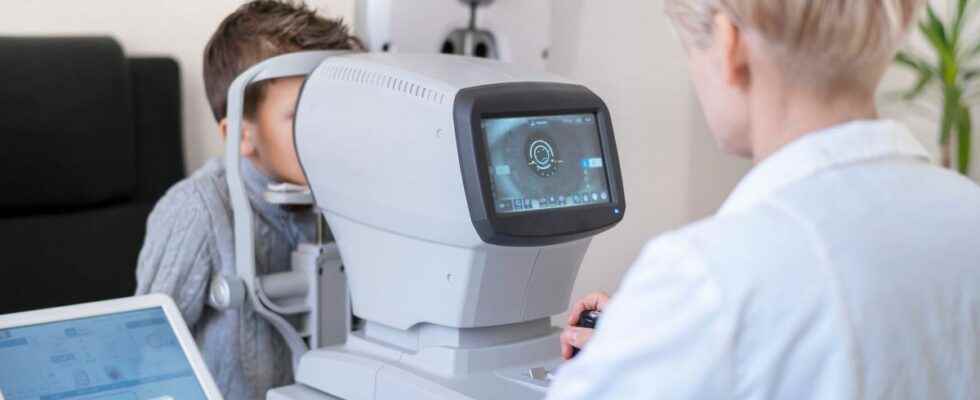Published on
Updated
Reading 2 mins.
The pandemic and the various confinements it has caused have accentuated sight problems in children, in particular myopia. However, there are ways to prevent and slow the progression of myopia. Update with Dr. Jean-Philippe Colliot, ophthalmologist near Paris, who will participate in the National Myopia Information and Screening Days, which will be held from November 21 to 25.
According to the 2022 Children’s Eyesight Observatory, produced by the Ipsos Institute for Krys Group, since the health crisis, children’s eyesight has continued to deteriorate. In effect, “40% of children aged 3 to 10 now have vision problems, an increase of 2 points in one year and 8 points in two years“says the study.
Screen time issues
Also according to this survey, “This increase is linked to changes in lifestyles and in particular the overexposure of children to screens, further aggravated by successive confinements. Children now spend more than 2 hours a day on average in front of screens“.
Facts confirmed by Dr. Colliot: “Myopia is a hereditary pathology. When you have a myopic parent, the risk of being myopic is multiplied by three, if both parents are myopic the risk is multiplied by 6. But we can see that the heredity alone cannot explain the changes that we see and the increase in cases of myopia over the past 20 years”.
For the specialist,these are activities performed too close, less than 30 centimeters“, which create vision problems.”And in particular the screens, which block the accommodation of the eyes too long in the same position“.
Some tips to prevent or slow myopia
One of the first tips for prevention, even if it seems like wishful thinking at times, as Dr. Colliot points out, is to limit screen time to one hour a day at most.
“There are also light therapy lamps to which children can be exposed, because they would have to spend two hours a day in outdoor light, but in reality this is not always possible.” adds the doctor. It is important to prevent myopia because once established, there is no going back.
However, various devices have been created to slow down its development. “There are spectacle lenses, contact lenses and even drops to slow down the development of myopia.” says Jean-Philippe Colliot.
Contact lenses, for example, are to be worn at night. They reshape the cornea to allow you to see the day correctly. “This device slows the development of myopia, these are lenses that keep one year and cost 350 euros on average. They represent a good alternative for adolescents, for whom surgery is not yet possible due to their young age.“says the ophthalmologist.
A screening campaign
Since last June, a national myopia screening campaign, called “Together against myopia” was launched by the Institute of Medical Education and Prevention, under the patronage of the National Observatory of Myopia.

Thus, from November 21 to 25, the first national myopia information and screening days will be held, in which Dr Colliot and other ophthalmologists will participate, by providing appointment slots for all those who wish get tested. To find a screening centre, visit the campaign website.
